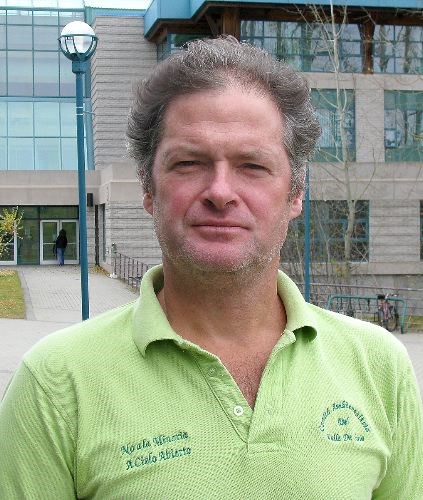Canadian mining and garment companies are exploiting the political upheaval in Honduras to profit at the expense of indigenous residents, according to Rights Action co-director Grahame Russell.
Russell was in Prince George last week speaking about human rights issues in Central America with the public and students at UNBC. Russell said mining laws in Honduras allow unlimited access to water resources, minimal royalty payments and oversight.
"The rule of law is profoundly corrupted by the wealthy elite. The rule of law simply does not work on critical political/economic issues," Russell said. "[But] by 2006 even the Honduran supreme court found 13 articles of the mining laws
unconstitutional."
Before changes to law and national constitution could be enacted, the government of Honduran President Manuel Zelaya was ousted by a military coup in June, 2009.
In August, Prime Minister Stephen Harper became the first foreign head of state to visit the country since the coup.
"From day two or three forward, Canada has played an incredibly negative role in Honduras," Russell said. "It's fundamentally the fault of Canada and the U.S. that this regime has any legitimacy at all."
The coup has been condemned by the United Nations General Assembly and
Organization of American States.
Canadian and other foreign mining companies have been linked to water shortages, water contamination and human rights violations by international watchdog groups like MiningWatch, he said.
"Canada has no laws effectively to hold Canadian companies for actions
overseas," he said.
That legal situation is being challenged in the case of 11 Guatemalan women who have launched a class-action lawsuit against Canadian mining company HudBay Minerals for human rights violations at the Fenix nickel project in Guatemala. In a statement of claim filed in an Ontario court, the women have alleged security personnel and police gang-raped and beat the women during a forced eviction from the mine site.
HudBay, which has since sold the mine, categorically denies the claims which have yet to be proven in court.
Russell and a team of students from UNBC played an indirect role in bringing that case forward.
UNBC geography professor Catherine Nolin said she will be bringing another group of UNBC students to Guatemala this May to continue investigation into human rights issues in Central America.



